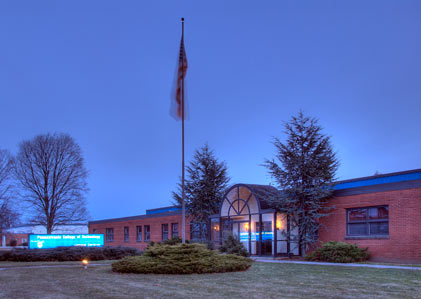HVAC Excellence
HVAC Excellence, an affiliate of the ESCO Group, offers progressive levels of certifications.
The first level of certifications begins with the Heating, Electrical, Air Conditioning Technology (H.E.A.T.) exam for high school students —a 100-question test to assess vocational training. The Heating, Electrical, Air Conditioning Technology (H.E.A.T.) PLUS exam includes 25 questions which measure computer literacy, safety, math, employability skills, and work ethics, as well as a performance test. It is worth mentioning that students who pass these exams receive certificates of achievement, but do not earn professional certification.
The next level is Employment Ready Certifications, which are for entry-level employees. These 100-question exams are available for professionals getting started in the fields of electrical, electric heat, gas heat, oil heat, air conditioning, light commercial air conditioning, light commercial refrigeration, heat pumps, systems diagnostics and troubleshooting, basic refrigeration and charging procedures, carbon monoxide safety, residential and commercial light hydronic heat, fuel oil combustion, natural gas combustion, combustion appliance zone, carbon monoxide and combustion analysis, and geothermal heat pumps.
The tests are administered at the end of a training module, and those who pass are awarded a certificate of achievement. Although these are not professional certifications, they do demonstrate knowledge and assist in obtaining employment.
Specialty certifications are designed for HVAC technicians who want to gain expertise in a particular specialization area. They may receive certification in system performance (an area which is especially helpful for installers), residential heat load analyst, green awareness, duct and envelope testing, R-410A, hydrocarbon refrigerants, and residential energy auditor.
HVAC technicians who have two or more years of experience may seek professional technician certifications. Principles of Electrical and Refrigeration Theory is a core exam that’s a prerequisite for all the other exams. The certifications include electric heat, heat pump installer, light commercial air conditioning, residential air conditioning, combustion analysis, gas heat, heat pump service, light commercial refrigeration, and residential and light commercial hydronic heat.
The master specialist certification is the highest level for HVAC technicians. In addition to demonstrating their theoretical knowledge, technicians must be able apply their knowledge through a hands-on performance evaluation. An example of a hands-on evaluation task is soldering a leak-proof and structurally-sound solder joint. To take the test, technicians must have at least three years of experience and have obtained professional technician certifications. The master specialist test is performance-based, and those who pass it are identified as “possessing the highest levels of competency.” Certification is available for more than two dozen fields of competency.
ESCO also offers Section 608 and Section 609 (automotive HVAC) preparation and testing. Students and technicians can obtain textbooks, study guides, and manuals from the online bookstore. Free practice exams are available for Section 608 and R-410A certifications.



